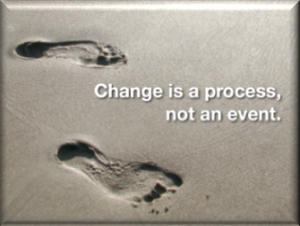 My road to recovery has been just that…a road…not an end-point destination. It is a process, a journey, and often a long one at that. I have found there to be bumps, diversions, lapses and ‘set-backs’ and while frustrating, these are a normal part of the recovery process. I now expect challenges and hiccups. I have learnt that there is no such thing as a perfect recovery process so I try not to panic, stress, or become disheartened if it appears that I’m taking two steps forward and one step backwards. That sometimes seems scary and upsetting, but it’s important that I persevere, don’t give up, and continue to extend trust, patience, and compassion towards myself.
My road to recovery has been just that…a road…not an end-point destination. It is a process, a journey, and often a long one at that. I have found there to be bumps, diversions, lapses and ‘set-backs’ and while frustrating, these are a normal part of the recovery process. I now expect challenges and hiccups. I have learnt that there is no such thing as a perfect recovery process so I try not to panic, stress, or become disheartened if it appears that I’m taking two steps forward and one step backwards. That sometimes seems scary and upsetting, but it’s important that I persevere, don’t give up, and continue to extend trust, patience, and compassion towards myself.
I have found it particularly helpful to create a prevention plan when I am in a relatively positive space, that highlights strategies for how I will cope with intrusive thoughts and feelings, and actions I can take or people I can contact if I am particularly concerned. Some of such strategies can be found throughout the various ‘Recovery Resources’, including Coping Strategies, Tips and Tricks, Self-Nurture, Self-Harm, etc.
It may be beneficial to also compile a list of warning signs, as in my experience, the eating disorder is pretty crafty and deceptive and will twist healthy thinking into disordered thoughts and behaviours quite rapidly if I do not remain vigilant. E.g. ‘I had a drink with my lunch, so I don’t really need afternoon tea…’ or ‘I’m going out for dinner tonight, so I don’t need to eat during the day…’ or ‘I’ve binged and it would be unhealthy for all this food to remain in me, and I feel bloated and nauseous anyway, so it won’t matter if I just vomit some of it up or exercise for a bit longer…’. These are all disordered eating thoughts…don’t let them trick you. Here are some other possible warning signs that are worth taking notice of:
- Slippery thinking, e.g. ‘It’s not a big deal if I just miss this one meal’, ‘Lots of people exercise for hours at a time’, ‘I’ve got this pretty well under control, so it’s ok for me to resume a diet’, ‘I probably should keep some laxatives around just in case I get constipated’, etc.
- Skipping meals/snacks

- Purging
- Retreating to my room and isolating myself
- Making excuses not to have meals with family/friends – avoiding situations that involve food.
- Significant increase in exercise
- Sleeping more/less than usual
- Missing appointments
- Decreased energy
- Increased depression and feelings of hopelessness
- Increase in frequency of weighing myself (note…there is NO need to weigh myself at home…ever! If my weight needs to be monitored, I can leave it up to my GP or dietitian to do so)
- Increase in perfectionistic thinking
In my experience, I have also needed to consciously work at reducing my exposure to triggers and where exposure is unavoidable, to create a plan of how I will navigate those times of increased vulnerability. Some of my triggers include:
- Dieting or ‘diet talk’
- Physical illness that affects appetite/eating
- Too many late nights or lack of sleep
- Forgetting to take my medications
- Missing meals (it is important for me to carry snacks in my bag in the event that I am unable to access my normal meal)
- Becoming too busy and failing to make time for self-care, rest, and relaxation
- Viewing a magazine that focuses on weight, diets, weight-loss, eating disorders, or has an abundance of unrealistically thin models.

- Weighing/measuring myself
- Seeing myself in photos
- Learning of a friend’s relapse or weight loss
- Clothes shopping
- Interruptions or changes to schedules
- Life stressors or pressures
- Relational issues
- Strong emotions such as shame, fear, guilt, anxiety, anger, depression, and loneliness.
- Boredom
I encourage you to create a list of your own triggers and vulnerabilities, be aware of them, and have a plan for when you are facing them. No one is invincible…as Nietzsche so aptly stated, “When we are tired, we are attacked by ideas we conquered long ago”.
Allow your recovery journey to be imperfect. Recovery IS possible but it is a deeply personal, unique process and requires support, understanding, encouragement and faith.
